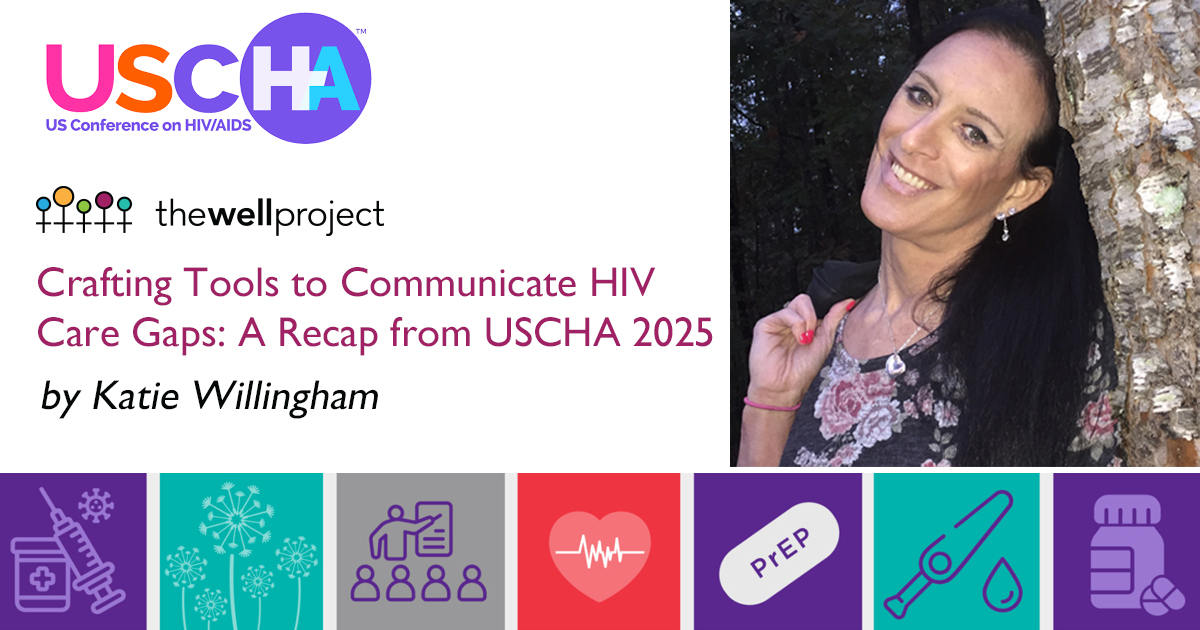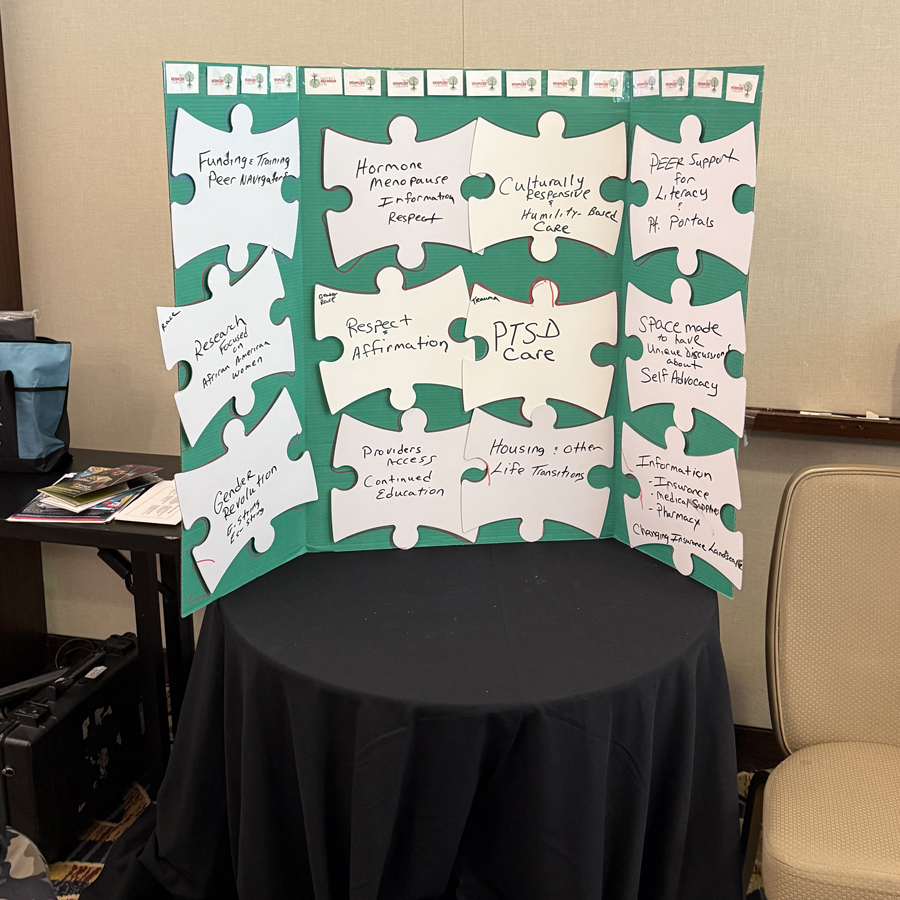
By Katie Willingham
Amid turmoil and uncertainty in Washington, DC, and across the United States, this year's US Conference on HIV/AIDS (USCHA 2025) descended yet again on the nation's capital from September 4 – 7. The theme of the gathering was Aging with HIV, and all sessions incorporated that crucial lens in some way. Members of The Well Project's community were involved in the conference on various levels, reporting on as well as presenting at the nation's largest HIV community meeting.
"Equity In Aging: Tailored HIV Care for Older Women" was another workshop that I was honored to participate in. It was put on by The Reunion Project and led by Waheedah Shabazz-El with assistance from Dr. Yolanda Ross of Positive Women's Network and myself. This was a fantastic discussion about the current healthcare system and analysis of what is missing from our healthcare that is needed, through the lenses of gender, race, trauma, and HIV.
We wanted to make a tool that people could take back home and share with their providers or their local health departments. Our plan was to discuss the various aspects of our services that are lacking and then build a physical model to represent those inequities. So we had large puzzle pieces that we could write on and on each piece of the puzzle we listed one of those shortcomings that needed addressing. The conversations were interesting, as women of various backgrounds had different needs, but there were also many consensuses that everyone agreed with.

We learned from each other's experiences and perspectives and came up with a list – non-comprehensive and incomplete, but a beginning of perhaps new conversations with our providers about what we feel is missing in our healthcare. And what did we determine was missing, or lacking? Training and employment of more peer navigators was felt to be needed, because peer navigators are a powerful tool in helping people who live with HIV because they're relatable, and that's important, especially for newly diagnosed clients who may be frightened and ignorant about HIV.
We also talked about the importance of research that focuses on disproportionately vulnerable groups like the BIPOC (Black, Indigenous, and other people of color) or transgender communities, because there are currently not enough studies done with these peoples in mind, and their communities suffer from it. We also discussed the need for menopause education for both cisgender women and trans individuals as very few in the room had much information about it. We thought that providers should have access to continued education, so that they can provide PTSD (post-traumatic stress disorder) care, non-judgmental, culturally responsive humility-based treatment, information about the changing political landscape, housing and other life necessities, and space for unique conversations about self-advocacy.
Then I mentioned respect and my need for affirmation from my providers, because without it, I'm no longer interested in your services. I have left a doctor's office without services before for being called "sir." As a woman of transgender experience there is nothing more insulting and insensitive than to be either dead-named or misgendered by the people you're supposed to trust with your care, and I refuse to tolerate it, especially from my provider.
We then gathered together all these puzzle pieces with our ideas and put them on a board together. I think we were all pretty pleased with the resulting physical representation of our needs that we could take back home with us. And that's the assignment: to take it home and implement these key points into our relationships with our doctors. I feel like this was a great idea and we were all happy with ourselves.
More from The Well Project on the 2025 United States Conference on HIV/AIDS (USCHA 2025)
The 2025 U.S. Conference on HIV and AIDS | On The Ground by KatieAdsila on A Girl Like Me
Building Community in a Harsh Political Climate: A Recap from USCHA 2025
Centering Pleasure, and How Providers Can Help: A Recap of USCHA 2025
Understanding the Burden of Survival for Women: A Recap from USCHA 2025




